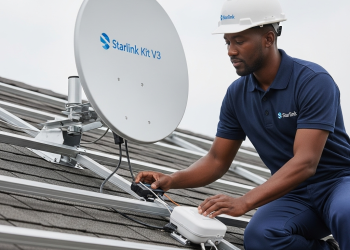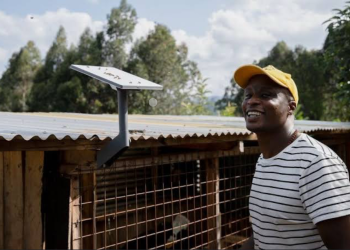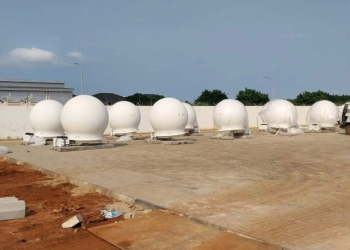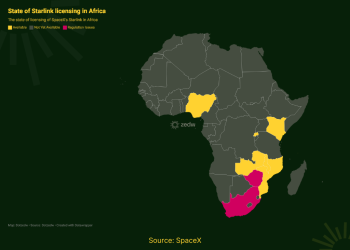JOHANNESBURG – Elon Musk, the billionaire born in South Africa, has taken to his social media platform X to speak out against his home country more than once. First, he criticized a land reform law, and now he is unhappy with internet rules that aim to fix post-apartheid inequality.
Musk, who is part of a U.S. administration that removed diversity, equity, and inclusion (DEI) policies, seems frustrated by similar rules in South Africa. Last month, he accused his birth nation of having “racist ownership laws” because of its land reform policies.
On Friday, Musk said his Starlink internet service cannot run in South Africa because he is “not Black.” Many people believe that President Donald Trump’s choice to stop U.S. funding to South Africa was influenced by Musk’s views.
After Trump made that decision, President Cyril Ramaphosa responded firmly, saying his country “will not be bullied.” The big question now is: Will he stand firm when it comes to Starlink?
What Is South Africa’s DEI Law, and Does It Work?
South Africa has its own version of DEI called Broad-Based Black Economic Empowerment (B-BBEE). This policy started in 2003 to fix economic inequality after apartheid. It helps more Black South Africans own businesses, gain skills, and get tax breaks.
Some experts say B-BBEE works in theory, but in practice, it has led to corruption. Some businesses and politicians have abused the system, helping only a small group of wealthy individuals. Others say the law has scared off foreign investors because it is too complicated.
A 2021 study found that Black-owned businesses grew from 40% in 2002 to 60% in 2019. But after COVID-19, the number fell below 30%, according to the B-BBEE Commission.
Even 30 years after apartheid, South Africa still has a 32% unemployment rate and is ranked by the World Bank as the most unequal country in the world.
How Does This Affect Starlink?
Starlink, owned by Musk’s company SpaceX, works in more than a dozen African countries. But in South Africa, it faces legal roadblocks.
Under B-BBEE rules, 30% of SpaceX’s operations in South Africa must be sold or donated to historically disadvantaged groups. This is because it is a foreign company, not because of Musk’s race.
In February, SpaceX pulled out of hearings with ICASA, South Africa’s internet regulator. These meetings were meant to discuss new satellite licensing rules.
Last year, SpaceX asked ICASA to change the ownership requirements, but the company has not yet applied for a license to run in South Africa.
However, foreign companies can invest in social projects like skills training instead of giving up ownership. Communications Minister Solly Malatsi recently introduced a new policy that could allow Starlink to operate without selling shares. If approved, this could clear the way for Musk’s satellite service.
Does South Africa Need Starlink?
South Africa has a higher internet rate (75% penetration) than other African nations. But rural areas still struggle. A government survey in 2023 showed that only 1.7% of rural homes had internet, compared to 12% in cities.
Some people believe Starlink could help cut costs and improve internet access. Others worry that Musk could control information. They point to Ukraine, where Starlink’s role in military communication became controversial.
Recently, U.S. officials suggested cutting Ukraine’s Starlink access to pressure President Volodymyr Zelenskiy into giving up critical minerals.
Meanwhile, some South Africans feel Musk misrepresented their country to Trump. They fear that relaxing B-BBEE laws for Starlink would set a bad example.
Critics of B-BBEE say that bypassing ownership rules could help Musk provide internet to poor areas. In fact, Starlink is already being used illegally in South Africa to power cancer screenings, rural schools, and anti-poaching cameras.














